
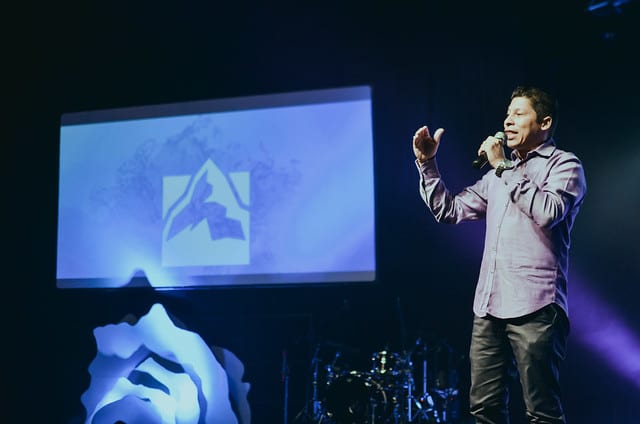 The country of Venezuela has been embroiled in political instability and economic turmoil for years, which has resulted in violent civil unrest. But two brothers, Jose and Alvaro Rea have become a source of hope by partnering with The Global Leadership Summit to bring leadership tools to equip people for transformation in their home country. (Read more about their vision for Venezuela in part one.)
The country of Venezuela has been embroiled in political instability and economic turmoil for years, which has resulted in violent civil unrest. But two brothers, Jose and Alvaro Rea have become a source of hope by partnering with The Global Leadership Summit to bring leadership tools to equip people for transformation in their home country. (Read more about their vision for Venezuela in part one.)
For Alvaro, the infusion of hope and bravery he received at the Summit became very personal when he was challenged to enter a riot, and bring peace amidst the turmoil.
This is his account of what happened that day in 2017.
In 2017, Venezuela faced one of the toughest moments in its history. A multitude of young people began demonstrating against the government, eventually leading to a lot of oppression, including deaths. Over the span of four months, one to two teens would be assassinated daily in these demonstrations. Many teens would also end up injured that year—more than 3,000 in total. Even more teens were incarcerated.
An organization of peace and justice was created in Barquisimeto, the city where I live. They asked me to participate in this organization. One night, we started receiving voicemails from terrorized individuals in an apartment complex known as La Sucre. They were saying their building had been surrounded by the National Guard and that there were military personnel occupying each floor of the building. They’d begun breaking the windows of several apartments with tear gas bombs that would eventually flood the living rooms and kitchens of these apartments.
I thought about what I’d learned about bravery and how it consists of acting regardless of the fear we may be experiencing.
The people were crying out for help in these voicemails, saying that their elderly parents were suffocating to death because of all the tear gas in their apartment. Two parents reported having to hide under their bed with their two children, not knowing what to do next. They kept begging for help from anyone who could provide it.
As we were receiving these voicemails, I thought about what I’d learned at The Global Leadership Summit. Specifically, I thought about what I’d learned about bravery and how it consists of acting regardless of the fear we may be experiencing. We must act for what we believe to be right and intervene in any way possible so that the situation may change.
I wrote to this organization of peace and justice exclaiming that we had to do something. One man wrote back to me saying, “Pastor, if you want to go, I will pick you up and we’ll go there together.” I told him to come get me. I said goodbye to my wife and children that night without knowing where I would be going.
When I got there, everything was very dark. Imagine a complex of about eight buildings in total darkness, covered in a giant cloud of tear gas and surrounded by several armed members of the military with some surveilling each floor. As our group got closer, we could hear cries from the window saying, “Help us! Help us!” Members in my group would yell back at them, saying, “Don’t worry! Pastor Rea is on his way!” I thought to myself, Wait, am I accompanying this group, or have I somehow been put in charge?
When we finally came face-to-face with the commander of this repressive military operation, he began to yell out that he didn’t believe in anyone and that he wouldn’t receive anyone. He then paused, looked me in the eyes and said that he would believe in me, the pastor. He asked me if I would like to pass and do something about the situation, to which I responded, yes.
I went up to the attic of the building with the commander. There, we found about 50 teens who had been protesting earlier that day, but who had decided to come up to the attic after seeing the military advancing toward them during their protest. They then threated to jump out of the attic windows if the military continued advancing on their position. So, I began talking to them and the military personnel surrounding the teens. I remember one of these teens telling me, “Pastor, tell me the Bible verse of how the arrows of death will not reach us.” I began reciting Psalm 23 to them. I then began reciting different passages of the Bible.
My prayer that night had been, Lord, give me bravery and lead us with your hands to do amazing, marvelous things.
It was as if peace had flooded the entire building. Not one more tear gas bomb was launched; not another shot was fired. I remember how, at that time, I‘d asked if there were any injured among the group of teens in the attic. They said one teen was gravely injured. Some soldiers had begun replacing their bullets with pellets made of iron so to fire at the teens. One of the teens had been struck in the head with one of these iron pellets and had lost a lot of blood. Another teen was pregnant, her health severely deteriorating during her time in the attic.
I said, let’s bring these injured individuals down so they can receive the medical attention they need. Mediating this negotiation was very tough; the teens didn’t trust the National Guard, and the National Guard refused to grant any concessions to the teens. Eventually, the National Guard decided to move down a couple of floors to be able to bring down the injured teens. The biggest shock to me, however, was watching them come out of the apartment complex, leaving me alone with the teens in the attic. I told the teens I would go see what was going on. As I went down and exited the building, I could hear somebody yelling, “Pastor, don’t leave!”
When I came back days later, this same lady came up to me and said, “Pastor, I asked you not to leave because after you got here, everything calmed down. Thank you for intervening.” It turns out that the National Guard had decided to leave permanently. After I told the teens up in the attic that they’d left, the teens came back down, after which all the lights in all of the buildings suddenly came back on, and the people trapped in the building finally came out of the building expressing immense gratitude.
A couple of months ago, marked two years since this night occurred. My neighbors still tell me about what happened that night. One of them wrote to me, thanking me for being the messenger God sent that night to prevent more deaths, even when it seemed as though everything had been lost.
—
Alvaro’s Grander Vision Requires Bravery
“I believe that everything we’d heard at The Global Leadership Summit about taking action and being brave in the midst of fear so this fear may then be dissipated, was one of the main things that helped me that day,” says Alvaro. “I had actually led a prayer that night before going to that building complex without knowing what I was about to go up against. In fact, the mayor of the city had attempted negotiating with the National Guard only to be denied entry to the building. My prayer that night had been, Lord, give me bravery and lead us with your hands to do amazing, marvelous things.”
I wish for men and women who will insert themselves in these key spheres of power in society, and that from their faith and convictions, do what is right no matter the consequences or threats this may bring.
Today, Alvaro participates in his church and is more open to listening to Scripture and the word of God. “I believe that the Summit has been fundamental in our work because, soon after that night, a group of pastors and I got together and helped create a movement that helped mediate difficult negotiations like the one I’d faced,” said Alvaro. “From that point on, the organization of peace and justice called on them during such situations and they sent pastors who had also had previous experience in mediating tough negotiations.”
Alvaro’s grander vision for Venezuela is that men and women of faith and integrity would rise with bravery to fight against corruption and violence, and to bring about the changes they so desperately need. “I wish for men and women who will insert themselves in these key spheres of power in society, and that from their faith and convictions, do what is right no matter the consequences or threats this may bring.”
“We are profoundly grateful to the men and women who have donated resources so that the Global Leadership Summit may be possible in 10 cities in Venezuela,” Alvaro shares. “More than 5,000 people are being blessed because of you [the donors]. Thank you. Many of these are young men and women, new professionals, students and people who are creating organizations that help children by lifting them out of malnutrition. Many of these teens have received the encouragement from the Summit to launch new companies in Venezuela in spite of the fact 80% of the companies in this country have gone bankrupt within the last couple of years. Therefore, what you all are planting here is yielding a lot of fruit, mainly in the form of blessings.”


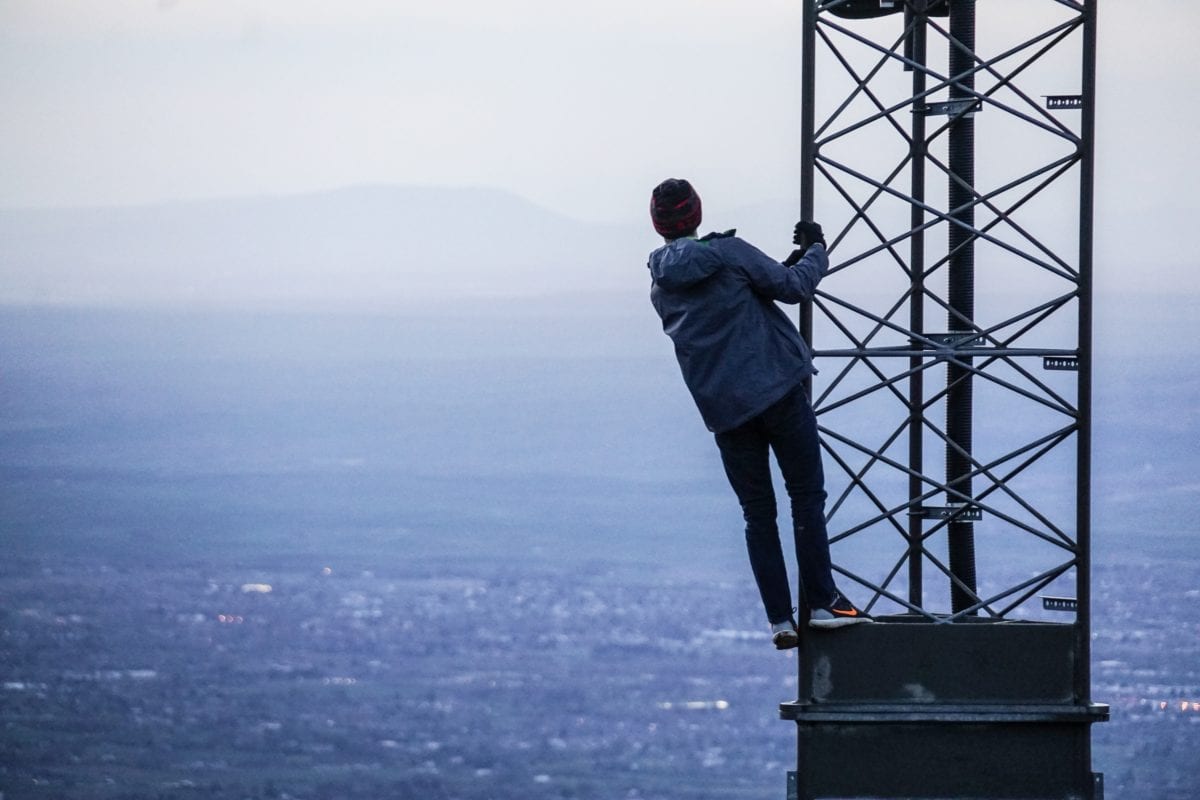
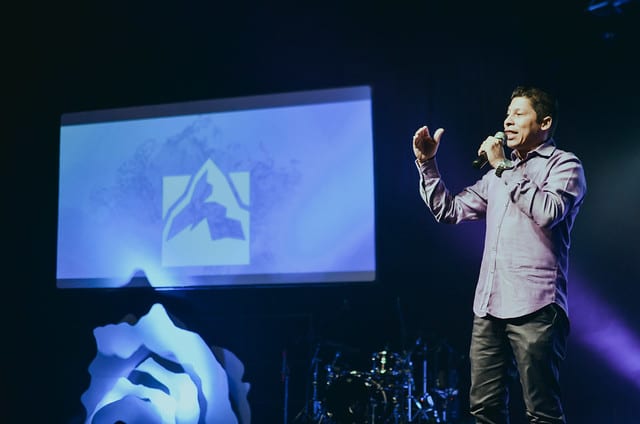 “We’re watching Venezuela submerge itself in a continuous depression. Due to several factors, including high taxes and inflation, it is becoming much harder for people to live their day-to-day lives,” says Jose Rea, GLS leader for Venezuela. “That is why we currently have an emigration problem where more than 5 million people have left the country.”
“We’re watching Venezuela submerge itself in a continuous depression. Due to several factors, including high taxes and inflation, it is becoming much harder for people to live their day-to-day lives,” says Jose Rea, GLS leader for Venezuela. “That is why we currently have an emigration problem where more than 5 million people have left the country.”

 The country of Venezuela has been embroiled in political instability and economic turmoil for years, which has resulted in violent civil unrest. But two brothers, Jose and Alvaro Rea have become a source of hope by partnering with The Global Leadership Summit to bring leadership tools to equip people for transformation in their home country. (Read more about their vision for Venezuela in
The country of Venezuela has been embroiled in political instability and economic turmoil for years, which has resulted in violent civil unrest. But two brothers, Jose and Alvaro Rea have become a source of hope by partnering with The Global Leadership Summit to bring leadership tools to equip people for transformation in their home country. (Read more about their vision for Venezuela in 




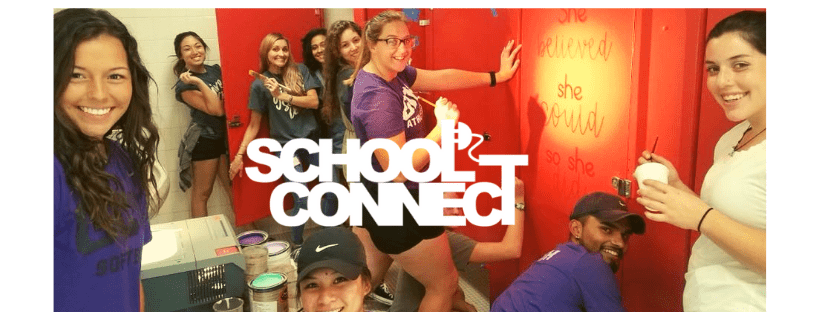
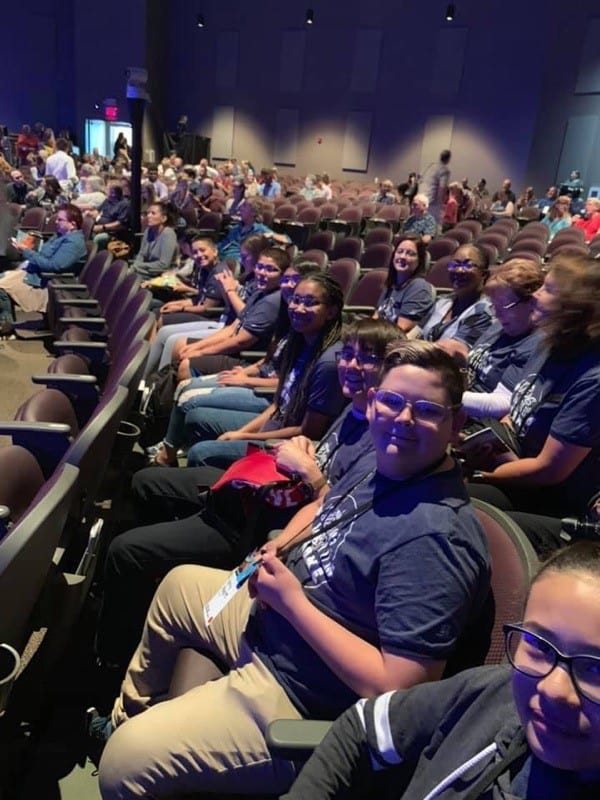 Founder of School Connect and Pastor of Community Development at Pure Heart Church, Tracey Beal, shares her heart for reaching her community through schools, and why she was so passionate about getting these key leaders together for the GLS in 2019.
Founder of School Connect and Pastor of Community Development at Pure Heart Church, Tracey Beal, shares her heart for reaching her community through schools, and why she was so passionate about getting these key leaders together for the GLS in 2019.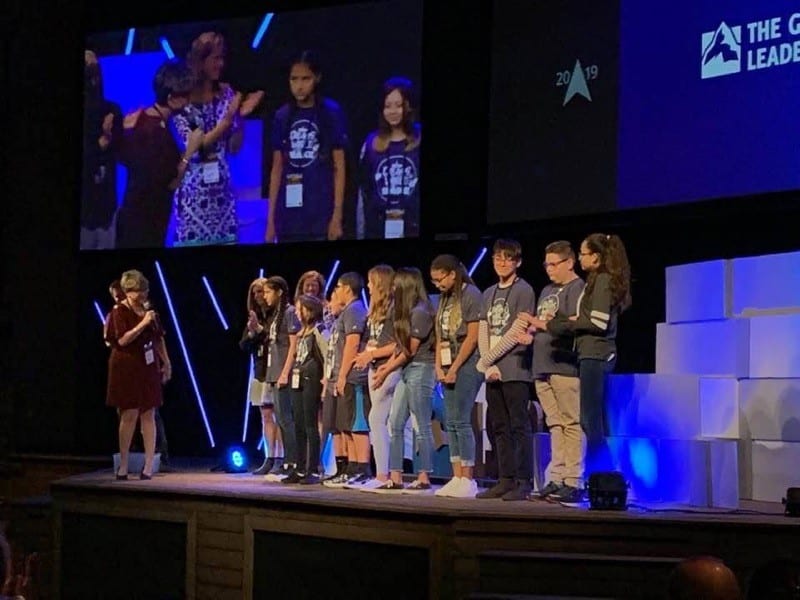 During one of the announcement sessions at school, the whole audience got to hear from the student council, as well as Lily and Betsy about how powerful it was to be there. “It really impacted the entire gathering,” said Tracey. “It was very empowering for our youth.”
During one of the announcement sessions at school, the whole audience got to hear from the student council, as well as Lily and Betsy about how powerful it was to be there. “It really impacted the entire gathering,” said Tracey. “It was very empowering for our youth.”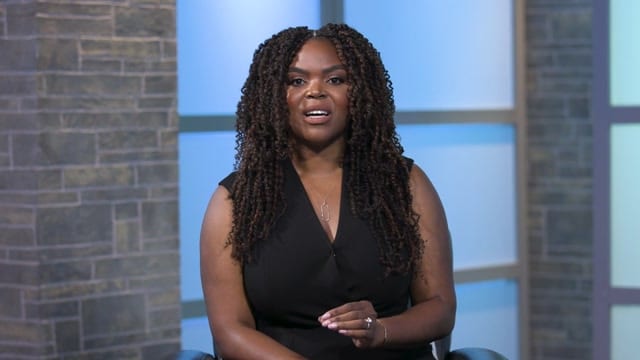

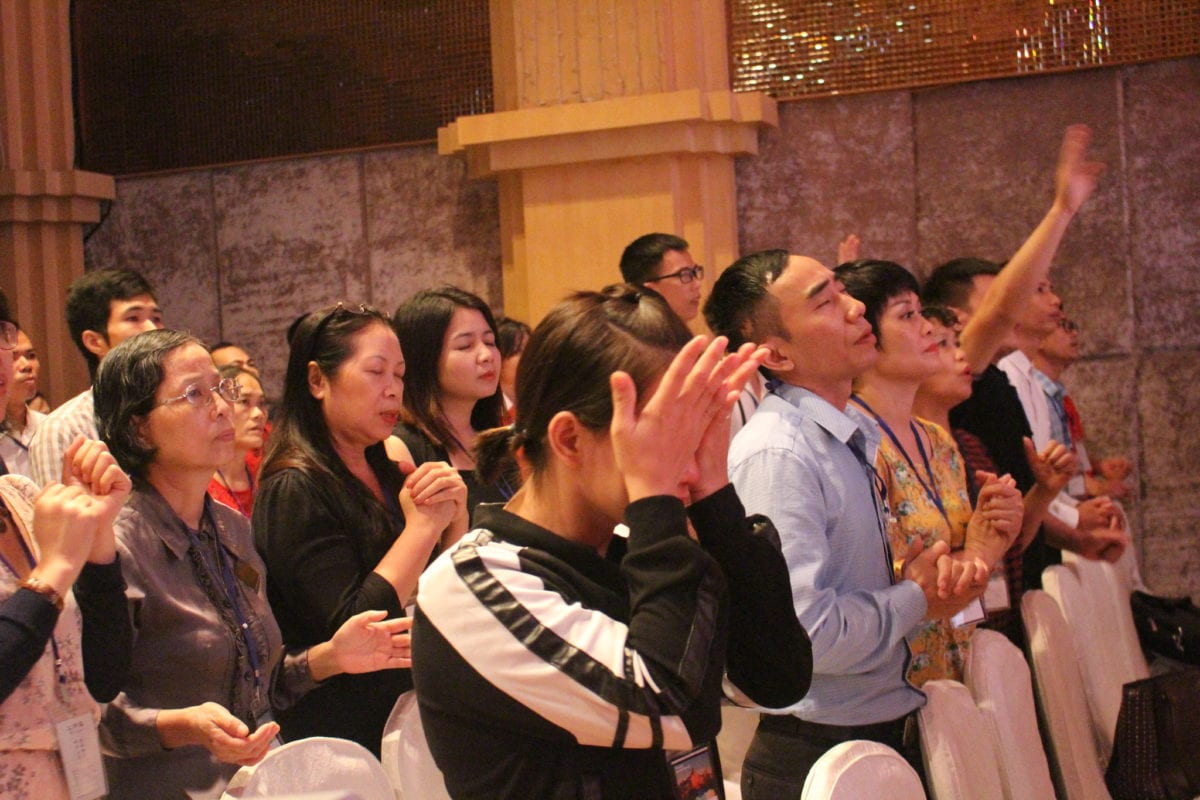
Recent Comments